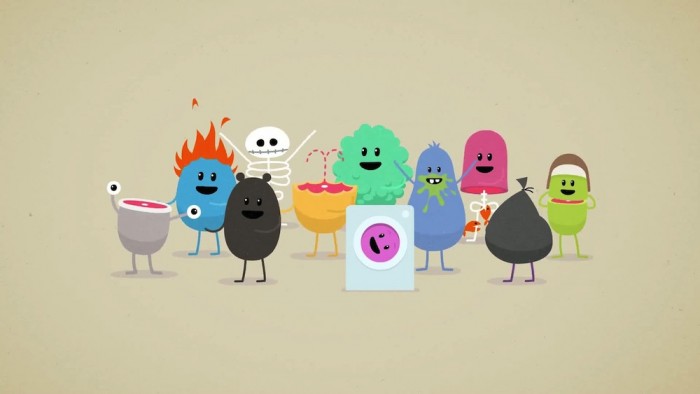
There are no short-cuts when it comes to producing award-winning creative work. Patrick Barron, executive creative director of McCann Australia, should know. He oversaw the creation of "Dumb Ways to Die" for Metro Trains, the most awarded campaign at the Cannes Lions ever and recipient of numerous global awards to the extent that, in 2013, McCann Australia won the “World’s Most Awarded Agency” title.
It's easy for an agency at the top of its game to think it has cracked the formula for creating great work and that by emulating the winning recipe, it could replicate this success. But, says Barron, to continue doing good work you have to “fuck the formula”. We caught up with him at the recent Loerie Awards, where he chaired the radio, television, film and video judging panel.
Fuck the formula
According to Barron, what often happens when a campaign does well, especially after awards shows, is that an entire industry says “We should do work like that; we should follow that formula”. They pick the campaign apart to try and puzzle together the formula for its success.
Even clients fall under the spell of a winning campaign and walk into their office asking for a campaign “just like that”.
After the success of "Dumb Ways to Die" McCann Australia had many clients who asked “Can you do a song for our brand?”, “Can you be irreverent and funny for our brand?”, “Can you do it again?”, “What is the formula?”.
“There was enormous pressure to do it again. But we realised there is no formula,” he recalls. “We realise that we couldn't do it again. Every single brief that you receive from a client has it own life, its own personality and is talking to its own audience."
Diversity breeds authenticity
One of the main reasons why a formula doesn't work and can’t be applied to different briefs is that it doesn't come across as authentic.
“If you try and follow what someone else has done, it won’t comes across as genuine,” he explains “Because the way of communicating doesn't ring true for your idea; because you are probably borrowing a way of talking to an audience that isn’t authentic to your idea.”
He argues that diversity of thinking as opposed to a formulaic approach is key to keeping your communication real. “Because I am interested in life my work is interesting,” he says.
With "Dumb Ways to Die", which was a public service announcement campaign by Metro Trains to promote rail safety, understanding the audience on YouTube was key: “If you tell them what to do they won’t listen, you have to give them content they can relate to and reward them for spending three minutes with your content.”
Learning to trust your client
Barron is often asked “How did you sell this to your client?” about the "Dumb Ways to Die" campaign, because of its perceived riskiness and irreverence.
He believes that selling an idea to a client does not depend on a formula for success but rather on a relationship of trust. And it is not just a one-way relationship of a client trusting the creatives: “You also have to trust your client and you have to trust that they want the same thing as you.”
When there is mutual trust, he says, there aren’t risky decisions – just “the right thing to do”.
The value of forgetting
Barron believes that when it comes to winning awards for work, short-term memory is an advantage. “The secret for us is to completely forget what we have done and sit down anew with a client to make something.”
McCann's “Guilt Trip” campaign for V/Line, a regional passenger train and coach operator in Victoria, Australia, exemplifies its “fuck the formula” approach. The tongue-in-cheek campaign leveraged the power of guilt to increase ticket sales. They came up with the idea of the Guilt Trip ticket, to encourage people who have moved to the bigger cities to visit their friends and family in regional Victoria. It was the company’s first new product innovation in over 50 years.
“Our creative solution wasn’t to advertise the trains or even the country. And as a train operator we didn’t feel we had the right to make people feel guilty about their reluctance to travel. But we could create a new product to advertise — The Guilt Trip a pre-paid V/Line ticket that friends and family in regional Victoria could buy for those living in metropolitan areas.”
The campaign that launched the Macquarie Dictionary's sixth edition also took an unconventional approach. The publisher of this dictionary of Australian English wanted to communicate the truth that language is always changing – hence the need for an up-to-date dictionary. So McCann decided to invent a new word – one that would describe a common, modern-day occurrence that had no word assigned to it yet.
They coined the word ‘phubbing’, to describe the uniquely 21st-century phenomenon of ignoring the person you're spending time with in favour of your phone. The campaign reached more than 300 million people and sparked global discussion around mobile phone etiquette.
It's a great example of transcending the usual boundaries of marketing by engaging with people as people (rather than consumers) and in a way that is intrinsic to the brand. If there is ultimately one thing to replicate, it's the approach of staying rooted in the brand's values and speaking in ways that will resonate with its target market.






